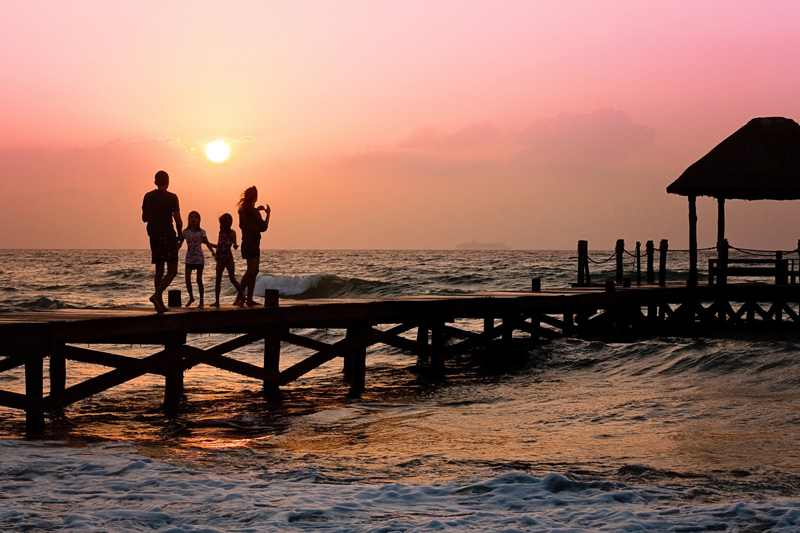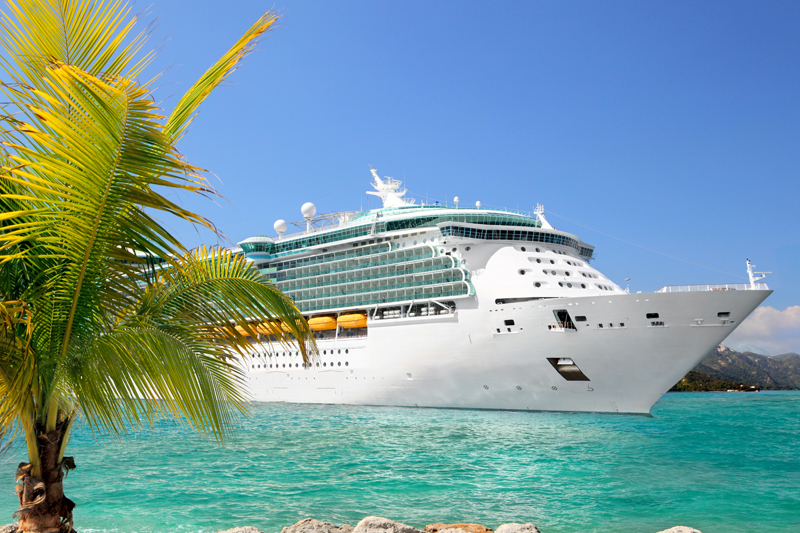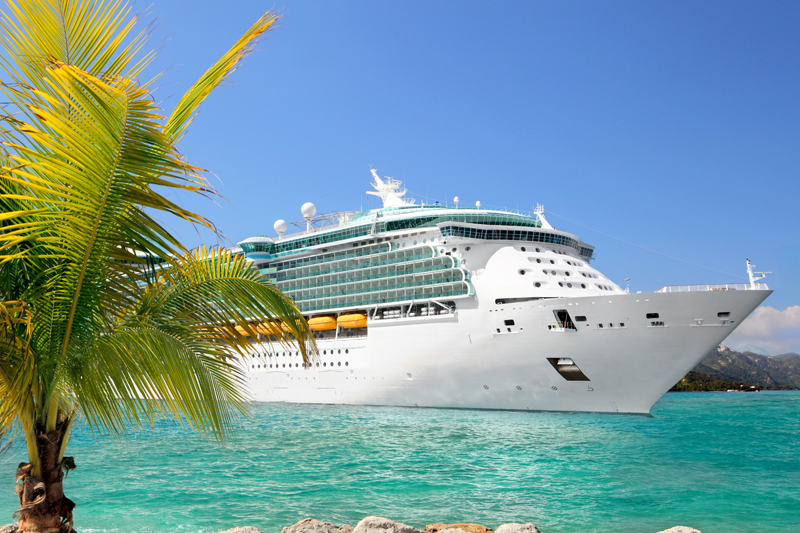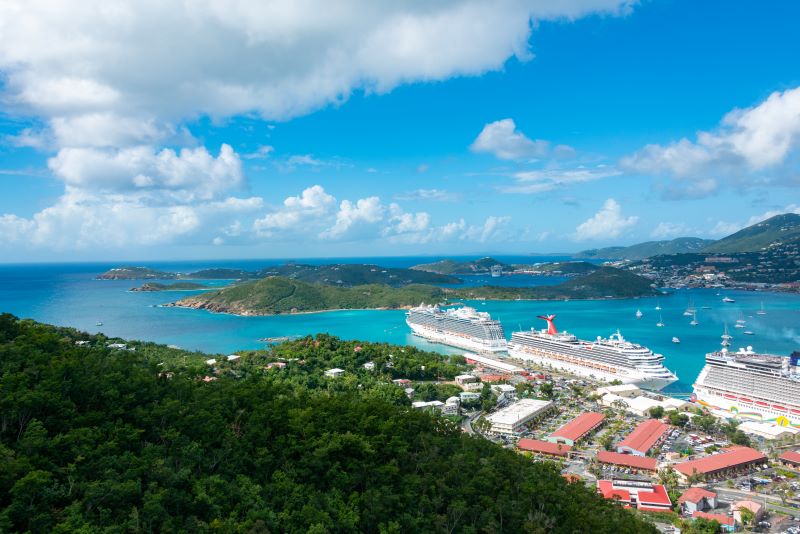7 Tips For Vacationing During Hurricane Season

Vacationers often plan trips during hurricane season, which officially stretches from June 1 to November 30. While it’s great to get away during the summer and fall months, there are some important factors to keep in mind as well. Hurricanes can result mandatory evacuations along the coast, rough seas, and stormy weather far inland. Heavy rain and weather issues can also impact flights and activities at your vacation destination, too.
Although bad weather is a risk during hurricane season months, sunny skies may prevail as well. It’s simply important to recognize the risks and plan accordingly. If you’re considering taking a vacation during hurricane season, check out these seven great tips:
1. Carefully Consider Available Destination Options. Peak hurricane periods for the Atlantic Ocean, the Eastern Caribbean and the Gulf of Mexico stretches from August through late September, although a number of major storms have formed much earlier and later in the season. Hurricanes and tropical storms are more likely to develop in the Western Caribbean from mid-August through early November. If beaches and warm weather are an important part of your vacation, be aware of hurricane risks when choosing your destination and plan accordingly. Some travelers plan last minute road trips to U.S. beach destinations during hurricane season, waiting until the weather forecasts become clearer. If you’re particularly worried about bad weather at the beach, it might be best to choose a mountain or lake destination and head to the seashore at another time.
2. Choose The Right Accommodations. It’s wise for vacationers to consider their accommodations choices when planning a hurricane season vacation. If you’ll be staying at a resort, consider the amenities and entertainment available at each property, paying special attention to indoor pools, activities and entertainment that can be enjoyed even in bad weather. If you’ll be staying at a vacation rental home, look for properties that offer plenty of amenities and activities that can be enjoyed in rainy weather as well as lots of room to spread out. It's particularly important to pay attention to cancellation policies and consider choosing those that offer the most flexibility in case you need to make a last minute change of plans.
3. Use a Travel Agent. Great travel agents are incredibly helpful in planning any vacation, since they can help travelers find and select the best destinations, accommodations and activity options for their trip. During hurricane season, help from travel agents can be even more important. Agents can provide valuable assistance such as keeping their clients posted on weather updates, itinerary changes and cancellations. They can also help them reschedule flights if a storm disrupts airline schedules and assist changing destinations and accommodations if necessary.
4. If You’re Flying, Select Your Flights Wisely. Flights can often be affected by bad weather and flight delays during hurricane season. Take a direct flight or leave plenty of time for connections. Direct flights can be more expensive, but that’s not always the case. Use a good travel agent or make your airline reservations immediately after you purchase your accommodations for the best results. If connecting flights are mandatory, make sure to allow plenty of time for connections. While a 40-50 minute connecting time between flights is often considered to be “legal” by the airlines, it will provide you with very little cushion if there’s a weather or mechanical delay. Play it safe and allow about two hours or so for connections. This is particularly true when traveling with children, as it often takes a longer time to get from gate to gate.
5. Purchase Travel Insurance. It’s wise to purchase trip insurance for vacation during hurricane season and any time of the year, but shop very carefully. A good travel insurance package will protect against travel and flight delays, flight cancellations, travel interruption costs, and trip cancellation due to a hurricane if your policy includes it. Make sure to research your policy very carefully before purchasing to understand what’s included and what’s not, however. Travel insurance policies are not created equal, so call your potential travel insurance company and ask about coverage and hurricane protection. Hurricane protection details vary substantially between travel insurance policy providers as well. Cancel For Any Reason policies are also available, which will generally reimburse 50-75% of pre-paid, non-refundable trip costs if you decide not to go on your trip due to the chance of bad weather or other non-covered reasons. Also remember that travel insurance only covers events that have not been already predicted, so purchase your trip insurance far in advance. Once weather forecasters have indicated that a tropical storm is possible, it’s too late to purchase trip insurance for hurricane coverage. In addition, some travel insurance policies will only protect against hurricanes that result in a cancellation or claim 14 days or more after the trip insurance policy is purchased.
6. Monitor Weather Forecasts. If you’ve planned a vacation during hurricane season, check the weather forecasts as your trip departure date gets closer. This is important for beach destinations as well as vacations planned further inland, as tornadoes and flooding can result. If you’re flying to your vacation destination, create airline notifications for each of your flights in case of delays or cancellations. If it appears that a storm may affect your travel plans, check with your airline to find out what options are available. These may include departing a day early if not doing so already or leaving on an earlier flight. Be proactive – don’t wait for the airlines to contact you. If you're driving, keep tabs on the weather to make sure road conditions will be safe. In addition, check the weather forecast for your home area to see if severe weather may be coming your way while you’re gone and plan accordingly.
7. Pack Sensibly. Pack plenty of rain gear, just in case. It’s sure to come in handy if bad weather occurs. It always helps to pack a positive attitude as well. While tropical storms may be possible, the weather could turn out to be fantastic for your hurricane season vacation. If you make your decisions wisely and stay flexible, you're likely to have a good time no matter what happens.
Although bad weather is a risk during hurricane season months, sunny skies may prevail as well. It’s simply important to recognize the risks and plan accordingly. If you’re considering taking a vacation during hurricane season, check out these seven great tips:
1. Carefully Consider Available Destination Options. Peak hurricane periods for the Atlantic Ocean, the Eastern Caribbean and the Gulf of Mexico stretches from August through late September, although a number of major storms have formed much earlier and later in the season. Hurricanes and tropical storms are more likely to develop in the Western Caribbean from mid-August through early November. If beaches and warm weather are an important part of your vacation, be aware of hurricane risks when choosing your destination and plan accordingly. Some travelers plan last minute road trips to U.S. beach destinations during hurricane season, waiting until the weather forecasts become clearer. If you’re particularly worried about bad weather at the beach, it might be best to choose a mountain or lake destination and head to the seashore at another time.
2. Choose The Right Accommodations. It’s wise for vacationers to consider their accommodations choices when planning a hurricane season vacation. If you’ll be staying at a resort, consider the amenities and entertainment available at each property, paying special attention to indoor pools, activities and entertainment that can be enjoyed even in bad weather. If you’ll be staying at a vacation rental home, look for properties that offer plenty of amenities and activities that can be enjoyed in rainy weather as well as lots of room to spread out. It's particularly important to pay attention to cancellation policies and consider choosing those that offer the most flexibility in case you need to make a last minute change of plans.
3. Use a Travel Agent. Great travel agents are incredibly helpful in planning any vacation, since they can help travelers find and select the best destinations, accommodations and activity options for their trip. During hurricane season, help from travel agents can be even more important. Agents can provide valuable assistance such as keeping their clients posted on weather updates, itinerary changes and cancellations. They can also help them reschedule flights if a storm disrupts airline schedules and assist changing destinations and accommodations if necessary.
4. If You’re Flying, Select Your Flights Wisely. Flights can often be affected by bad weather and flight delays during hurricane season. Take a direct flight or leave plenty of time for connections. Direct flights can be more expensive, but that’s not always the case. Use a good travel agent or make your airline reservations immediately after you purchase your accommodations for the best results. If connecting flights are mandatory, make sure to allow plenty of time for connections. While a 40-50 minute connecting time between flights is often considered to be “legal” by the airlines, it will provide you with very little cushion if there’s a weather or mechanical delay. Play it safe and allow about two hours or so for connections. This is particularly true when traveling with children, as it often takes a longer time to get from gate to gate.
5. Purchase Travel Insurance. It’s wise to purchase trip insurance for vacation during hurricane season and any time of the year, but shop very carefully. A good travel insurance package will protect against travel and flight delays, flight cancellations, travel interruption costs, and trip cancellation due to a hurricane if your policy includes it. Make sure to research your policy very carefully before purchasing to understand what’s included and what’s not, however. Travel insurance policies are not created equal, so call your potential travel insurance company and ask about coverage and hurricane protection. Hurricane protection details vary substantially between travel insurance policy providers as well. Cancel For Any Reason policies are also available, which will generally reimburse 50-75% of pre-paid, non-refundable trip costs if you decide not to go on your trip due to the chance of bad weather or other non-covered reasons. Also remember that travel insurance only covers events that have not been already predicted, so purchase your trip insurance far in advance. Once weather forecasters have indicated that a tropical storm is possible, it’s too late to purchase trip insurance for hurricane coverage. In addition, some travel insurance policies will only protect against hurricanes that result in a cancellation or claim 14 days or more after the trip insurance policy is purchased.
6. Monitor Weather Forecasts. If you’ve planned a vacation during hurricane season, check the weather forecasts as your trip departure date gets closer. This is important for beach destinations as well as vacations planned further inland, as tornadoes and flooding can result. If you’re flying to your vacation destination, create airline notifications for each of your flights in case of delays or cancellations. If it appears that a storm may affect your travel plans, check with your airline to find out what options are available. These may include departing a day early if not doing so already or leaving on an earlier flight. Be proactive – don’t wait for the airlines to contact you. If you're driving, keep tabs on the weather to make sure road conditions will be safe. In addition, check the weather forecast for your home area to see if severe weather may be coming your way while you’re gone and plan accordingly.
7. Pack Sensibly. Pack plenty of rain gear, just in case. It’s sure to come in handy if bad weather occurs. It always helps to pack a positive attitude as well. While tropical storms may be possible, the weather could turn out to be fantastic for your hurricane season vacation. If you make your decisions wisely and stay flexible, you're likely to have a good time no matter what happens.

Related Articles
Editor's Picks Articles
Top Ten Articles
Previous Features
Site Map
Content copyright © 2023 by Nancy Schretter. All rights reserved.
This content was written by Nancy Schretter. If you wish to use this content in any manner, you need written permission. Contact Nancy Schretter for details.







